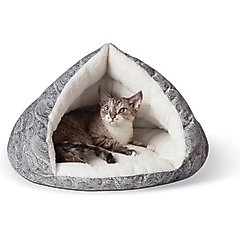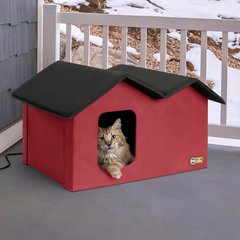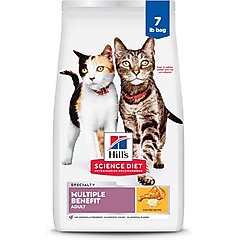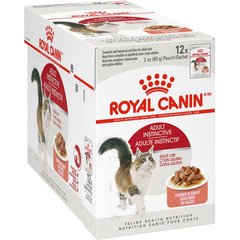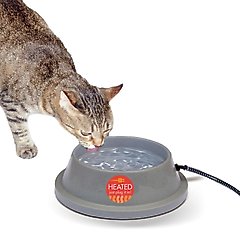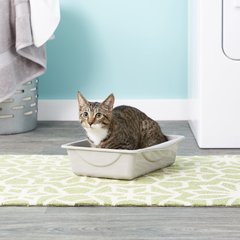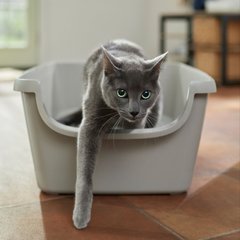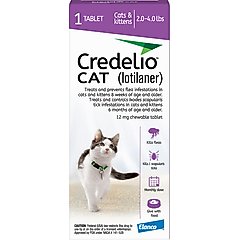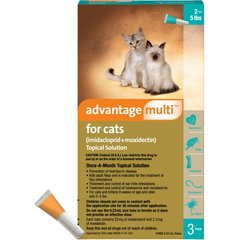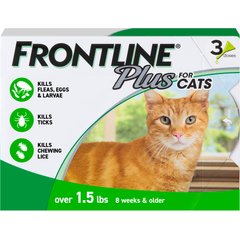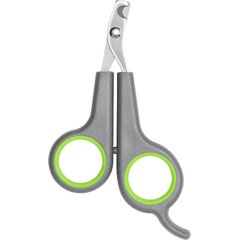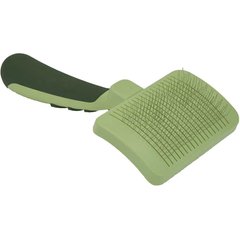Catch That Mouse! How To Pick a Barn Cat
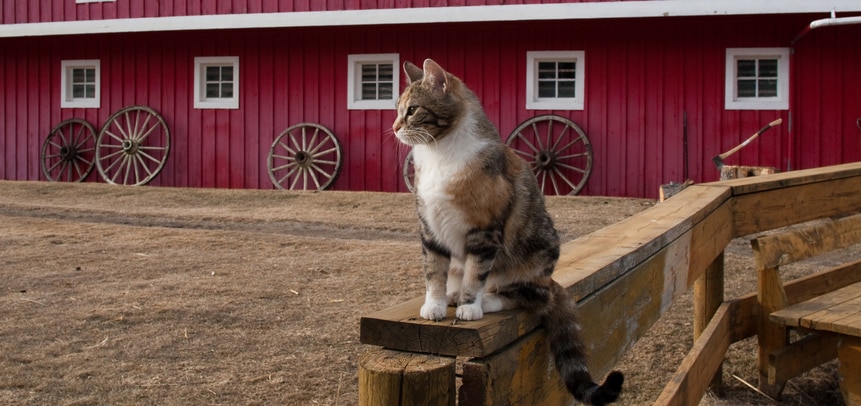
Photo by jzabloski/iStock / Getty Images Plus via Getty Images
When you think of a farm, images of horses, chickens, and cows no doubt come to mind. But don’t forget about the useful barn cat!
There are many cats on farms throughout the country, living their best lives while providing a valuable service to their human caretakers by taking care of pests. You have many options when picking a barn cat.
Key Takeaways
- Barn cats can make a great addition to your farm so they can catch mice and other pests.
- Barn cats still need the same medical care as companion cats, including vaccines and regular wellness exams.
- Feral cats can be barn cats and often already have the skills needed to be great "mousers."
What Is a Barn Cat?
A barn cat (aka farm cat) lives on a farm and helps control rodents and other pests. They’re “working cats” with an important job to do, and they’re well-cared for and safe.
Mice and other wild rodents can wreak havoc on farm structures, gnawing everything in sight, including support beams and insulation. Pests can also get into animal feed, which can spread diseases like leptospirosis. Luckily, a barn cat or two can help keep rodents at bay.
These kitties also keep horses and livestock company. “Barn cats are known to snuggle up to their livestock friends,” says Ellen Carozza, LVT, VTS (CP-Feline), and a co-founder of the Chris Griffey Memorial Feline Foundation in Marshall, Virginia.
Some barn cats are more interactive than others. While one kitty might avoid people, another might enjoy spending time with farm workers and visitors.
Not all kitties are suited to the barn cat lifestyle, though. If a cat relies on human companionship or doesn’t like being outside, they should be kept inside a home. Their health can also determine if they should be indoors-only.
What Makes a Good Barn Cat?
Transitioning an indoor-only cat to barn life isn’t recommended, as it will cause stress and the kitty won’t thrive. Instead, cats who are used to being outside, such as ferals or strays, can more easily acclimate to this type of environment and lifestyle because they aren’t as reliant on humans and the comforts of an indoor life.
The best barn cats are excellent hunters with a high prey drive and a lot of energy. They’re active, agile, athletic, and playful. And they’re strong and healthy enough to be outdoors.
Barn cats are also keenly aware of their environment. Their attention is focused on any changes within their territory so they can act right away (e.g., if a mouse scurries by).
Kittens raised by mousing mothers tend to learn hunting skills and are likely to be good mousers, says Judith Samson-French, DVM, a vet in Calgary, Alberta. Feral and semi-feral cats are great mousers, too, because they know how to fend for themselves.
The Best Barn Cat Breeds
Mixed breeds make fantastic barn cats, so you don’t have to search for a specific purebred. For example, domestic shorthairs can do a wonderful job on the farm. On the other hand, because longhaired cats need to be groomed to prevent painful mats in their fur, they aren’t the best choice.
Some breeds with traits for living the barn cat life include:
“Many shelter cats labeled as working cats, or those who are semi-feral, often make outstanding barn cats, regardless of breed,” says Dr. Samson-French.
Carozza also recommends looking for barn cats in shelters, as they tend to do poorly in those settings and are in desperate need of homes.
Should You Get More Than One Barn Cat?
There’s a common misconception that all cats are solitary. Some of them do enjoy being the only cat in a home or on a farm, but many prefer having other felines around to interact with and avoid loneliness.
“Generally, barn cats like company to snuggle when it’s cold. They also learn hunting techniques from each other,” says Dr. Samson-French.
Having multiple barn cats can also help ensure you get the results you want when it comes to pest control.
“There is no one test to determine whether or not the cat is going to perform the way you want it to,” says Carozza. For example, some cats might excel at mousing, while others might be better at providing companionship to livestock.
If you’re planning on having several barn cats on your farm, consider each kitty’s personality to help prevent fights. You might need to limit the number of cats to keep the peace.
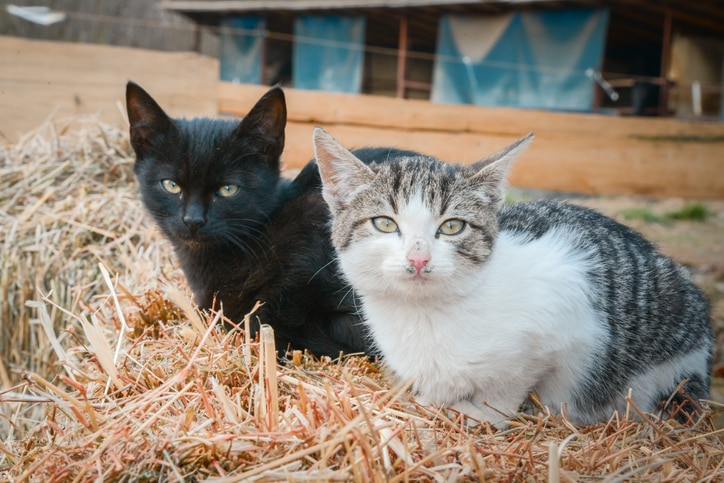
Foto Zlatko/iStock / Getty Images Plus via Getty Images
What Do Barn Cats Need?
Like all cats, mousers who live on farms need to be checked on often and properly cared for.
Routine
“When adopted, many cats will be quarantined in their barn for several weeks, acclimating to the new smells, sounds, and animals they share their space with,” says Carozza.
Barn cats need to learn your routine. In the same way that indoor cats thrive on routine, farm cats like knowing what to expect every day.
Shelter
Your barn cat should have clean, dry shelter from the elements and secure places where they can hide and rest.
When it’s hot, you may find them searching for the coolest spot in the barn. On the other hand, self-warming or heated cat beds and unheated or heated outdoor cat houses can provide comfort when it’s chilly.
Recommended Products
Also, protect your cats from harmful foods, medications, substances, and machinery throughout the barn and farm by making sure everything is stored securely.
Food and Water
Barn cats should be fed a high-quality cat food daily. Don’t worry, feeding your barn cat won’t stop them from hunting, as they’ll hunt for sport even if they aren’t hungry.
Recommended Products
Provide fresh, clean water at all times. A heated bowl, like the K&H Pet Products Thermal-Bowl, can prevent water from freezing.
Recommended Product
Litter Box
Set up a litter box and clean it daily. Though barn cats might opt to do their business outside, there may be instances when they need to use the litter box.
Recommended Products
Parasite Preventives
Barn cats are at risk of becoming infected with worms, fleas, parasites, and ticks that are detrimental to health and can spread to other animals and humans.
Talk to your veterinarian about parasite treatments and preventives. Examples include chewable tablets like Credelio and spot-on treatments like Advantage and Frontline.
Recommended Products
Spay/Neuter and Vaccinations
To stop barn cats from reproducing, spay and neuter them—this can help prevent territorial fights, too.
Barn cats are exposed to wildlife and other cats, so always keep them up-to-date on vaccinations (e.g., rabies, FVRCP) to provide protection.
Veterinary Care
If you notice your barn cat exhibiting symptoms of illness or injury, consult a veterinarian.
A vet can perform wellness exams and test the cats regularly for viruses like feline leukemia (FeLV) and feline immunodeficiency virus (FIV) that can spread to other kitties.
If a health condition is serious enough, your veterinarian may advise transitioning your barn cat to an indoor lifestyle.
Daily Interactions
“Unless fully feral, in which case they avoid human interaction, a little love daily goes a long way. Being habituated to human handling is a must for when they’ll need medical help,” says Dr. Samson-French.
You don’t have to trim your barn cat’s nails, as they need them to be sharp for taking down prey and defending themselves. However, check them to be sure they aren’t overgrown and trim them with cat nail clippers if necessary.
Recommended Product
Because they’re eating raw meat and bones from their prey, barn cats may not need to have their teeth brushed. Your veterinarian can check their mouth and let you know if brushing is necessary.
You might have to bathe your cat if they get very dirty, or brush their coat with a cat brush to remove debris.
Recommended Product
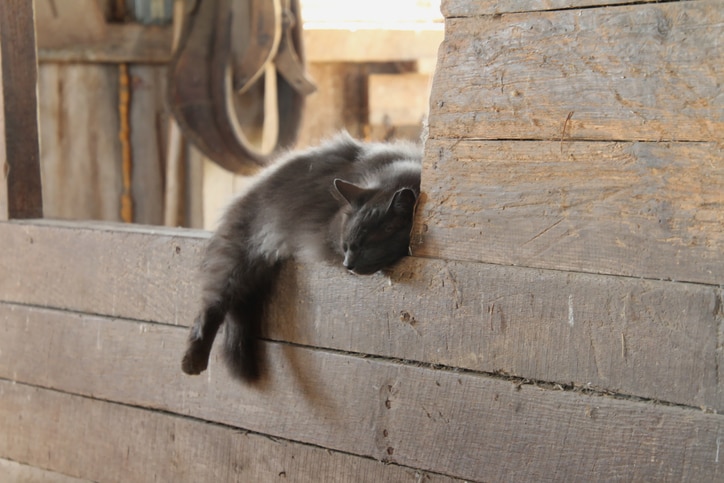
Deborah Kletch/iStock / Getty Images Plus via Getty Images
Protection From Predators
Keep in mind that barn cats can be vulnerable to predators like:
- Large birds of prey
- Bears
- Mountain lions
- Wolves
- Coyotes
If neighbors allow their dogs to wander, they might also pose a threat to your barn cats. Do your best to protect them from these dangers.
“Ensure there are lots of small hiding spots for barn cats to run for cover quickly,” says Dr. Samson-French.
Other tips for protecting barn cats include the following:
- Keep barn cats enclosed in the barn at night or install microchip-activated doors to prevent intruders from entering
- Feed the cats only during the day and remove any uneaten food to avoid attracting wildlife.
- Install motion-activated lights and fences to help deter predators.
- Consider adopting a guardian animal such as a trained dog or a donkey who can live with the cats and help keep them safe.
Identification
Collars can get caught on objects, such as fences, and pose a choking hazard. Instead, have your barn cats microchipped to boost the odds of finding them if they get lost.
Where To Find Your Next Barn Cat
Sometimes you get a barn cat effortlessly when a stray kitty walks onto your farm and decides to call it home.
But if you’re interested in barn cat adoption, consult with a barn cat rescue or an animal shelter with experience in adopting out cats who exhibit the appropriate traits. In addition to having adoptable farm cats, these experts provide guidance on choosing the right kitties and introducing them to your farm.
“Many shelters and rescues have programs where you can adopt barn cats at little to no cost,” says Carozza.
Can Feral Cats Be Barn Cats?
Yes, former feral or community cats can make good farm cats. Because they haven’t been socialized and don’t feel comfortable around people, ferals prefer an independent, outdoor lifestyle. But they need to acclimate to their new environment, and this takes time and patience.
“A proper introduction period—minimum four weeks—is needed, or else they [may] disappear,” says Dr. Samson-French. “After settling in, engage in minimal handling and respect their boundaries. Build routine, speak softly, and move slowly around them.”
Feral cats are cared for the same as other barn cats. However, when they need vet care, mild sedatives may be prescribed to help keep them calm.
Now that you have a better understanding of barn cats, their needs, and how to find them, you can decide if your farm would benefit from these skillful felines.
Attributions
This article was medically reviewed by Melissa Witherell, DVM, Chewy veterinarian.
